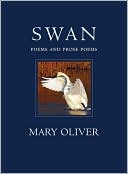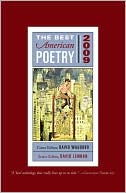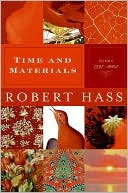Face
Formally adventurous, emotionally and musically rich, Charles North's poetry has received numerous honors, including two NEA grants and four Fund for Poetry Awards. In Cadenza, he displays all the qualities that made James Schuyler call him "the most stimulating poet of his generation" and the Washington Post hail him as "one of the most memorable of contemporary poets."
Search in google:
Formally adventurous, emotionally and musically rich, Charles North's poetry has received numerous honors, including two NEA grants and four Fund for Poetry Awards. In Cadenza, he displays all the qualities that made James Schuyler call him "the most stimulating poet of his generation" and the Washington Post hail him as "one of the most memorable of contemporary poets."William Corbett - Boston PhoenixCharles North's Cadenza continues his pursuit of what poetry can be. His poems are improbable and wholehearted engagements of a man's imagination with life and language, which, here, are presented as harmonious entities. While North adeptly commands life-giving language in an eight-line poem like "My Ship Has Sails," he is equally as adventurous with longer works like "Cadenza" and "Boul' Mich." His work displays a particular ability to turn on a dime, yet also allows a beautiful poem such as "Romantic Note" to remain that. There's nothing fussy or experimental here, just freestanding poems of original and exhilarating character, devoid of overbearing description.
\ Boston PhoenixCharles North's Cadenza continues his pursuit of what poetry can be. His poems are improbable and wholehearted engagements of a man's imagination with life and language, which, here, are presented as harmonious entities. While North adeptly commands life-giving language in an eight-line poem like "My Ship Has Sails," he is equally as adventurous with longer works like "Cadenza" and "Boul' Mich." His work displays a particular ability to turn on a dime, yet also allows a beautiful poem such as "Romantic Note" to remain that. There's nothing fussy or experimental here, just freestanding poems of original and exhilarating character, devoid of overbearing description.\ —William Corbett\ \ \ \ \ Publishers WeeklyBrash, confrontational verse and prose have made Alexie the most famous, and the most controversial, Native American writer of his generation. Alexie (First Indian on the Moon), in this first book of poems since 2000, sometimes works in sonnets, rhymed couplets, short quatrains, even villanelles. The results are mixed and occasionally naïve ("When I tell my wife about my adolescent rage/ She shrugs, rolls her eyes, and turns the page"). More successful are his many experiments with footnotes and interpolated blocks of prose within poems, devices that let Alexie explore his self-consciousness, as he looks back on his childhood on "the rez" in Washington State, inward to his sex life and his happy marriage, and outward to public events, from the Clinton impeachment to Gonzaga University basketball. Alexie's self-interruptions also permit flights of comedy, with homages to Richard Pryor and to the porn star Ron Jeremy. The humor, in turn, lets Alexie brace himself for his most serious subjects: his love for his son, the history of his people and the last illness and death of his father, a flawed but durable example of the manliness for which Alexie so often strives. (June)Copyright © Reed Business Information, a division of Reed Elsevier Inc. All rights reserved.\ \ \ \ Library JournalPoet, novelist, and National Book Award-winning YA author Alexie writes "with a ragged and rugged formalism," he says, and has mastered both the metrical dance and fixed forms. A sequence of sonnets finds the Seven Deadly Sins in marriage, for instance; a villanelle begins with Mount Rushmore but eases into a consideration of America's Presidents, complemented by wry and smart footnotes. One series of rhymed tercets in tetrameter is supplemented with footnotes in the same formal pattern, footnotes that have footnotes, by the way. Top that! Well, a sonnet (about comedy) has footnotes presented in seven couplets, then notes on those notes in three quatrains and a final couplet-in essence, a sonnet hat trick. Alexie is keen-witted and sharp-tongued, even occasionally raw, but all in the service of truth: "But don't these fools realize/ That I am always surprised// By the beauty of this life?/ Don't they ever laugh and cry// at the gorgeous absurdities of sex?" Alexie is not always about laughs, not always about sex; there are a lot of serious undercurrents in his poetry, and they are always a pleasure to find. Highly recommended.\ —Louis McKee\ \ \








